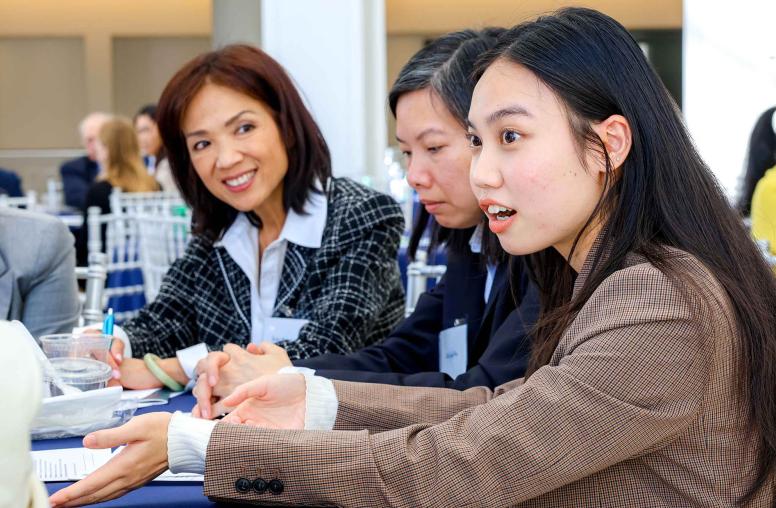What Works in Youth Projects? Lessons for the Youth, Peace, and Security Field
Until the adoption of U.N. Security Council Resolution (UNSCR) 2250 in 2015, the international community had no comprehensive framework with which to address the specific needs and opportunities of a key demographic group—young people. This report presents the findings of a meta-review assessing fifty-one youth projects supported or implemented by USIP between 2011 and 2018 and offers recommendations for continuing to develop and support peacebuilding activities with effective engagement, cooperation, and flexibility among civil society organizations and funders.

Summary
- In 2015, U.N. Security Council Resolution 2250 outlined a new youth, peace, and security agenda around five action areas: participation, protection, prevention, partnership, and disengagement and reintegration.
- Against the backdrop of this agenda, USIP commissioned a meta-review of youth projects it funded or implemented between 2011 and 2018 to identify factors likely to encourage or hinder project success.
- Project success was found to depend above all on high levels of capacity and expertise of the local implementer, meaningful inclusion of youth participants, and the inclusion of all relevant stakeholders, particularly non-youth community leaders.
- Selection bias, lack of facilitation skills, and insecurity or political instability were identified as the factors most likely to hinder project success.
- To succeed in operationalizing the youth, peace, and security agenda, youth-serving CSOs should create the conditions necessary for youth to design, implement, and monitor their own projects.
- Funders also need to support co-creation and joint decision making, as well as strive to better understand the insecurity and instability of the local contexts in which youth-led projects are implemented.
About the Report
In 2018–19, the United States Institute of Peace commissioned the Agency for Peacebuilding—a nonprofit organization that specializes in designing and conducting research on conflict prevention, resolution and peacebuilding—to conduct a meta-review of fifty-one USIP youth projects that were funded and implemented between 2011 and 2018. This report summarizes the evaluation and offers recommendations for the broader youth and peacebuilding field along five key action areas.
About the Authors
Rebecca Ebenezer-Abiola is a program officer with the Curriculum and Training Design team at USIP’s Center for Applied Conflict Transformation. She works on USIP’s youth portfolio and the border Security Training Program. Jeremy Moore is a senior program officer for the Grants and Fellowships team within the Policy, Learning, and Strategy Center at USIP.


